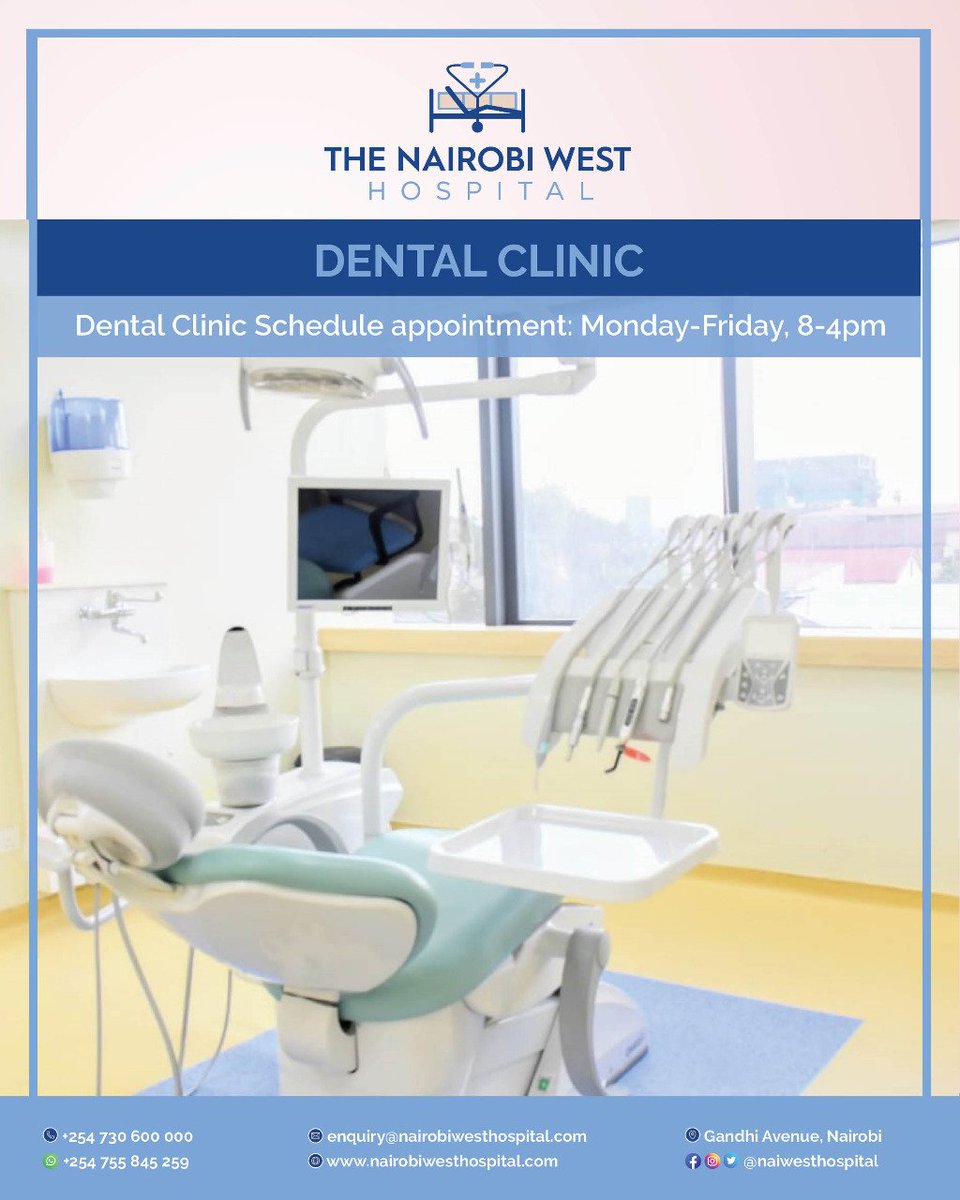Kenya Institute of Curriculum Development (KICD) Senior Assistant Director Olive Mbuthia, said the thematic areas in health education would be included in the reformed curriculum, including oral health.
Stakeholders from KICD, University of Nairobi, the Kenya Dental Association and Ministry of Health were in consensus on the importance of integrating oral health into the school curriculum.
“KICD is glad to participate in the forum as the last major review for health education in basic education was in 2002. We have been working separately with the Kenya Dental Association, the Ministry of Health and the University of Nairobi and saw it fit to bring these stakeholders together to drive the agenda of oral health in the school curriculum as the Kenya Institute of Curriculum Development are undertaking the reforms,” said Wrigley East Africa Head of Corporate Affairs Wanja Mwangi.

The Nairobi West Hospital offer dental treatment with Implantology, invisible braces, laser dentistry (painless soft tissue treatment), paediatric dentistry, and a painless root canal to patients.
Chief Dental Specialist at the Ministry of Health Dr Elizabeth Onyiego said that the ministry will ensure that policy reform catches up with the changing realities on the ground, as well as emerging issues within the sector.
Further, a summary of the health status of the Kenyan people is given based on the results of the studies. The mean DMFT for the rural and urban populations is low and there is no evidence of an increase or decrease.
Similarly, the prevalence of periodontitis is low (1–10%), with no increase. Ulcerative lesions are rare (0.12%). The most common birth defects are cleft lip and palate. Oral cancer is very low, accounting for 2% of all malignancies.
Comparative studies have not demonstrated any dramatic change in the frequency of oral cancer for the last 25 years. Oral candidiasis is the most prevalent oral lesion amongst HIV/AIDS patients.
In June 2003, Kenya formulated a National Oral Health Policy, which gives direction on how to improve the oral health status of the citizens.
Dental caries, gingivitis and plaque experience in 449 handicapped children aged 5-15 years attending special schools in Nairobi were determined.
An intervention programme to assess oral hygiene status was also instituted. Caries was found in 198 (44%) of these children with a mean DMFT of 0.8. The severity of caries increased with age. Gingivitis was found in 166 (37%) of the children while plaque was present in all sites examined. After treatment during the intervention programme, there was a marked reduction in the number of sites affected by gingivitis and those with plaque, showing that it is possible to institute a cheap and effective oral health programme in schools.
A good dental care means regularly brushing and flossing your teeth, going for frequent dental check-ups, and consuming a healthy diet. Practising these habits will prevent your gums from getting damaged, control bad breath, and increase the life of your teeth.
The main factor which causes tooth decay and gum disease is plaque. Plaque is a sticky combination of bacteria and food which starts to build up on teeth within 20 minutes after a person eats. If teeth are not cleaned well each day, plaque then causes tooth decay. If a person fails to remove plaque, it turns into a hard deposit known as tartar that becomes trapped at the base of the tooth. Plaque and tartar, inflame and irritate the gums. Bacteria and the toxins they produce can cause the gums to become infected, swollen, and tender.
The common ailments that require dental care are bad breath, caries or cavities, gingivitis or gum diseases, abscesses, loosening of tooth, leukoplakia or white patches and cancer of the mouth.

The Nairobi West Hospital dental clinic has the best doctors and state-of-the-art technologies like Dental RVG, Digital Orthopantomogram and Dental Implants, we cater to patients’ preventive and primary healthcare requirements. Our dental hospital offers the best dental treatment in Kenya.
Kenya’s dentist to population ratio is 1 to 44,000 in the public sector and only 20 per cent of dentists are in rural areas, according to data from the Ministry of Health. Education in oral health will help bridge some of these gaps.



















